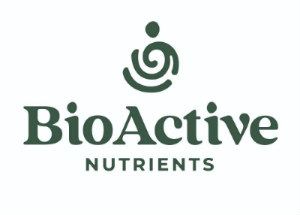7 Things You Need To Know About Vitamin D3
Posted by BioActive Nutrients on 3rd Oct 2016
For 14 years on my radio show in Oklahoma City, I ask every health practitioner I interview what nutrient(s) their patients are most deficient in.
Nearly all of them say, “Without a doubt, Vitamin D3”.
If you think vitamin D3 is only a bone nutrient, you’re missing out of one of the most valuable vitamins you could possibly take. And since most of us are deficient in it, we’re at risk for a number of serious conditions.
Here are some things you should know about D3:
1). D3 Is The Form Your Body Actually Uses.
When sun interacts with the cholesterol on your skin, it makes D3. It’s silly to make your body work hard to process forms of vitamin D that are synthetic and aren’t what the body prefers.
2). Maybe We Should Call It “Hormone D3”.
Once it’s being used by the body, it’s not a vitamin anymore; it’s a hormone. When vitamin D is made, the body turns it into a hormone called “calcitrol”. (Sounds like calcium, doesn’t it? You’ll understand why in just a bit.)
3). D3 Makes Calcium Work Better.
If you’re taking calcium for bones, you should know that calcium doesn’t do a very good job by itself. In addition to needing phosphorous, boron, and other minerals to make bones, all of those minerals need vitamin D3 for them to absorb into the bone matrix.
4). Trying To Prevent Cancer? Take Your D3.
If you get enough Vitamin D3, your risk of colon, breast, ovarian, and prostate cancer goes down. Oncologists have also found that in patients with cancer, vitamin D3 can help prevent the spread of the cancer to other organs.
5). Reduces Risk of Diabetes, Too??
That’s what the studies show. One, in particular, revealed that people with the highest levels of D3 had a 38% lower rate of diabetes than those with the lowest levels of D3. Others have shown D3 helping increase insulin sensitivity. (Looks like D3 may give CinnaChrom a little competition!)
6). Are You Tired Because Your D-ficient?
One reason for doctors to order a vitamin D blood test is when their patients complain of being tired all the time. Signs of D-deficiency include tiredness, weakness, difficulty climbing stairs or getting up off the floor or a low chair, and needing to use inordinate effort while walking.
7). D Is The New C.
Everyone knows that when coughs and sniffles start in, vitamin C is a good thing to take to get the immune system back online. But vitamin D is slowly taking over that role. Immune cells actually have vitamin D receptors on them. According to the Journal of Investigative Medicine, vitamin D deficiency can make us susceptible to infections. (Ironically, the same article showed that vitamin D deficiency can also raise the risk of autoimmune diseases. FYI.)
So bone up on vitamin D3! It’s fat-soluble, so take it with meals rather than on an empty stomach. Since the most vitamin D-rich foods include fatty fish, egg yolks, beef liver, and cheese, vegans may be especially at risk for developing D-deficiency. Get a reasonable amount of sunlight, if possible. Get tested, and then take a high qualityvitamin D supplement according to your needs.

